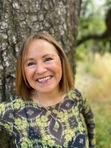Mary Reynolds Thompson's Blog, page 3
October 3, 2017
Confessions of a Wild Child
As a child, I attended a convent 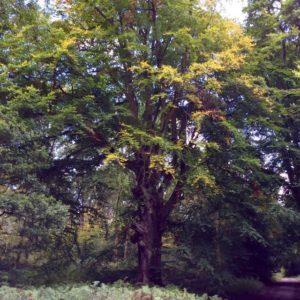 boarding school in Surrey, England. Our main building was a 19tth century redbrick. It was designed as a French chateau, but ended up looking sturdy and sensibly Victorian. Our lives were run by bells, from the moment we woke up until we went to bed. Despite being operated by nuns, it was in every way patriarchal. It stifled imagination, sensuality, and stripped us of our power. We were being brought up to be pure young ladies, ––good marriage material.
boarding school in Surrey, England. Our main building was a 19tth century redbrick. It was designed as a French chateau, but ended up looking sturdy and sensibly Victorian. Our lives were run by bells, from the moment we woke up until we went to bed. Despite being operated by nuns, it was in every way patriarchal. It stifled imagination, sensuality, and stripped us of our power. We were being brought up to be pure young ladies, ––good marriage material.
We attended mass, benediction. We confessed our sins. The school, set in 700 acres, featured tiered gardens, grass tennis courts, and large fields. But there was also the woods. The wilderness. The place where we went to hide, to smoke, to walk into the local town and, acting older than our years, pool together to buy wine at the local off-license.
We made fires in the woods, cooked sausages, sat on damp leaves that smelled of dust and decay and fungus. In spring, we ran through lakes of bluebells. We told stories, feeling grown up as we sucked on our pungent Gitane. It was in the woods that we encountered a naked man astride the branches of a tree. Because we ran in a pack, like wolves, we were unafraid. We kept going to the woods.
I know now that that woods represented the wild me. The one that yearned to break free from this orderly and ordained life. I needed the woods to hide in, to pull away from the glare of the nuns with their desire to control us. I needed it to crouch close to the ground. To get my feet muddy, my knees scraped. I needed to hunker down on the earth with my friends and tell stories and share secrets—to remind myself that beyond the convent walls was a world already stirring with the liberating energies of the 60’s and 70s.
I can smell the woods now––the fragrance of life rising and decaying… the soil soft, the world dark, unknowable. I am wearing a blue serge skirt and mustard yellow shirt with a gold and blue striped tie. This is my uniform. But soon I will be free. Soon the convent walls will no longer be part of my life. Soon I will be released to find my own way in the world.
The forest was—and remains—for me a place of danger and exploration. But also of joy and community. It holds my need for wildness and freedom.
Now, in a way that feels truly miraculous, I am calling a circle of women together into the redwood forests of Northern California above Santa Cruz, November 3-5. Just as we did all those years ago at school, we will circle around the campfire, share stories, secrets, root ourselves in the depths of our own wild beings–far away from the rules and regulations that hold us back. Here, we will explore what’s possible when we leave the straight path, the linear path, and breathe the wild forest air.
What spells do you long to conjure? What healing do you want to create? What is the magic you carry? It’s time to enter the forest and find out.
Will you join me for A Wild Soul Woman Retreat?
The post Confessions of a Wild Child appeared first on Mary Reynolds Thompson.
September 25, 2017
A Wild Soul Woman Weekend Retreat, Sponsored by TreeSisters
A Wild Soul Woman Weekend Retreat, Sponsored by TreeSisters
This is an invitation to all wild soul women and TreeSisters to join with me in circle, November 3-5, at a retreat center amid the redwood forests of Northern California above Santa Cruz. We will write, share, commune with nature and take a unique journey through Earth’s Archetypes as aspects of our own wild souls. We are wondrous. We are wild. We are rising. For more information go to:
https://www.maryreynoldsthompson.com/wild-soul-woman-weekend-retreat/
The post A Wild Soul Woman Weekend Retreat, Sponsored by TreeSisters appeared first on Mary Reynolds Thompson.
September 1, 2017
Fighting Rationalism
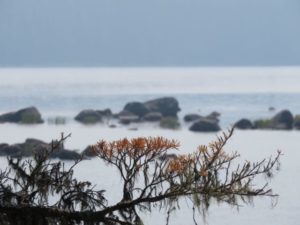
The rationalist must reduce,
It’s in their nature.
Pragmatic logic insists,
On conformity of thought,
Anomalies will not be tolerated,
Measurable verifiable data,
Equations balanced,
Algorithms written,
Formulas deduced,
Universal laws obeyed,
But shadows still linger,
The face behind the face,
Unconscious chaos,
Irrational processes,
That feeds the soul.
Ah but we have no soul,
For logic deems it thus,
No individual light,
Only predictable
Chemical reactions.
And biological impulses,
And our bones rot into
Infinite night,
Not for me,
Give me wisdom
Beneath cool moonlight,
And wild gypsies songs,
Give me anarchist poems,
And the strange happiness
Of religious folk,
Give me anything,
But your sterile world
Washed in monotone grey.
(C) Paul Martin
What is it to look beyond rationality to the shadows that still linger? What do you sense in those shadows?
What is it you want. Write a poem that begins, Give me… and list all the things your heart longs for.
In what ways do we still need irrationality? How do you break from pragmatism and feed your soul?
The post Fighting Rationalism appeared first on Mary Reynolds Thompson.
My Story of the Eclipse: A Matter of Enchantment
It’s hard to put into words, t he enchantment.
he enchantment.
But there we were, my husband and I, in a large field in Madras, Oregon, with thousands of others. All heads tilted skyward, watching the moon nibble away at the sun.
It was as if I understood cosmic depth for the first time. What had felt flat, now appeared three dimensional as I watched the primeval dance of earth, moon, and sun unfold. I thought, this is it: I am tumbling into the sky.
Then, total eclipse. I had expected complete darkness, but wham, all around the abyss-black moon a corona of light so bright I gasped. The air filled with whoops of primal joy. Hands pumped, people howled. We were wrapped in sunset skies. 360 degrees of setting suns, it seemed. The air was eerily chilled.
It barely felt like planet Earth anymore. I was transported.
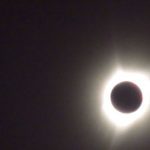 In this world, the fiery sun protected the dark moon, encircled her in passion. Here was darkness so dark it was impenetrable, and light that seared from the sky with such intensity it was shocking. I saw in that moment, the perfect balance of masculine and feminine. The moon then slipped slightly to the side, and a fiery diamond of light appeared to the right of it. The sun had begun its return.
In this world, the fiery sun protected the dark moon, encircled her in passion. Here was darkness so dark it was impenetrable, and light that seared from the sky with such intensity it was shocking. I saw in that moment, the perfect balance of masculine and feminine. The moon then slipped slightly to the side, and a fiery diamond of light appeared to the right of it. The sun had begun its return.
One woman I met told me it was the greatest natural high she had ever experienced. People grinned at each other. Swallows, silent only moments before, took to the skies like drunken pilots. Lovers kissed. The world reclaimed its color. Kids laughed out loud. I felt a jolt of ecstasy in every cell of my body.
For hours afterwards, despite rising heat, traffic that did not move, endless waiting, no one seemed to get mad. No one said it wasn’t worth it.
In a moment of magical thinking, I imagined that when I returned to the everyday world, it would be changed. Tyrants would have tumbled, people would have woken up, goodness would reign.
But nothing was different. Except, perhaps, the hearts and souls of everyone who had stared up, enchanted, into that sky.
The post My Story of the Eclipse: A Matter of Enchantment appeared first on Mary Reynolds Thompson.
August 15, 2017
You, Darkness

You, darkness, that I come from
I love you more than all the fires
that fence in the world,
for the fire makes a circle of light for everyone
and then no one outside learns of you.
But the darkness pulls in everything-
shapes and fires, animals and myself,
how easily it gathers them! –
powers and people-
and it is possible a great presence is moving near me.
I have faith in nights.
(C) Rainer Maria Rilke
Begin a poem with the words, You, Darkness….
The poet speaks of coming from darkness. Do you feel that you also come from darkness? If so, how? If not, why?
If you had faith nights, what would change? Write a poem or prose piece that explores this question.
The post You, Darkness appeared first on Mary Reynolds Thompson.
Where Has All the Darkness Gone? In Search of the Eclipse
Later this week, Bruce and I head to 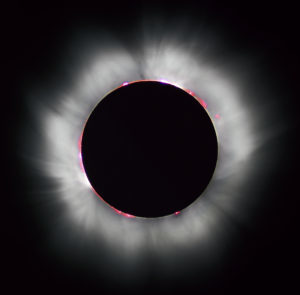 Oregon for the total eclipse. The closest I have ever been to one was when I was a little girl growing up in London. I can’t remember special eclipse glasses, so I’m not sure if we were all in danger of going blind or told not to look up. Or perhaps we used a DIY pinhole projector. All that is unclear. What I do remember is the unearthly feeling, the twilight sky.
Oregon for the total eclipse. The closest I have ever been to one was when I was a little girl growing up in London. I can’t remember special eclipse glasses, so I’m not sure if we were all in danger of going blind or told not to look up. Or perhaps we used a DIY pinhole projector. All that is unclear. What I do remember is the unearthly feeling, the twilight sky.
I also grew up during the time of the pea-soup fogs, when the London air was so thick and yellow from coal dust you couldn’t see an inch in front of you. Darkness wasn’t uncommon in the middle of the day. My mother, 9-months pregnant with my brother, got lost with my father one night in one of the classic pea soupers of 1953. They ended up roaming around Regent’s Park for hours, and then, finally, clinging from lamppost to lamppost, found their way home in the small hours of the morning.
Up until the late 19th century, when electric lights became prevalent, darkness was a natural part of our lives. The seasons effected us directly. In fall and winter, we experienced more intensely the shorter days, the lengthening shadow of night. In spring, we awoke like trees unfurling their leaves, as the sun penetrated our being for ever longer stretches. Now, the lights of our cities burn so brightly they upset the migrating patterns of birds. Used to navigating by moon and stars, they are drawn to the light and crash into illuminated buildings.
Birds need the black of night to find their way home.
I can walk around my valley at night by lamp light, the stars above dimmed by the blaze of lights on Earth. This seems not just a loss of beauty, but of soul. We forget that dark matter and dark energy comprise 95% of the universe. We are creatures of darkness.
They expect millions of visitors along the track of the total eclipse, which stretches from Oregon to South Carolina. There are people who become so hooked on eclipses they chase them all across the planet. No wonder. Before so-called enlightened humans turned on the switch and banished darkness, it, too, was our home.
And so, come Thursday, Bruce and I set off to experience this primal and powerful event. And love that for all our human ingenuity, we cannot escape the moment when the moon thrusts her body between sun and Earth, and darkness descends.
I’ll tell you about my eclipse experience in my next newsletter, and look forward to hearing about yours. Meanwhile, let me know about your relationship to darkness.
The post Where Has All the Darkness Gone? In Search of the Eclipse appeared first on Mary Reynolds Thompson.
July 31, 2017
A Great Need
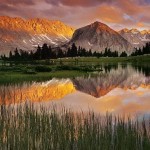
Out
Of a great need
We are all holding hands
And climbing.
Not loving is a letting go.
Listen,
The terrain around here
Is
Far too
Dangerous
For
That.
– Hafiz of Shiraz
(translated by Daniel Ladinsky)
This poem speaks to how dangerous situations demand we pull together. Write a poem, beginning “Out of a great need…” that explores what and whom you gain support from.
Describe the dangerous terrain you find yourself in. What does it look like? What makes it dangerous? How are you navigating it.
Where are you on the slope of your life? What can you see from here?
The post A Great Need appeared first on Mary Reynolds Thompson.
What Can We Learn From Trees? To Care for Each Other!
I am deep into “The Hidden Life of Trees.” 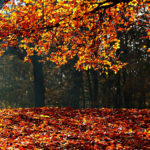 This exceptional book by Peter Wohlleben explores the little known world of trees. The language is simple, but the message profound: trees are sentient beings.
This exceptional book by Peter Wohlleben explores the little known world of trees. The language is simple, but the message profound: trees are sentient beings.
They feel. They talk. They care for each other.
In thinking about today’s damaging and divisive political landscape, it appears to me as if we can learn much from trees. Especially in regard to how they work together.
We can plant trees, but we cannot plant forests. Forests are created by trees collaborating and supporting each other in extraordinary ways.
We learn from Wohlleben’s book that trees share nutrients and water with each other. They are careful to grow in a manner that doesn’t interfere with their friends’ growth. When under attack from insects or other predators, they let other trees around them know so they can defend themselves too. They nurse and shelter the young saplings in the forest. They equalize the rate of photosynthesis so that all members of a species––weak or strong, thick-trunked or thin––end up with the same amount of sugar per leaf.
Trees aren’t just concerned with their own survival; they are concerned with the well-being of the whole: the forest itself.
As with the human world, there are hermit trees that would rather have nothing to do with others. But as Wollebhen writes, trees will simply use fungi to get around any blocks and keep their underground communication system going. They know how important it is to keep talking to each other, whatever obstacles are put in their way.
It isn’t that certain trees don’t dominate, or that all trees get along equally well (trees also have tribal tendencies, it appears). It’s that in the long run they appear to care more about the web of life then any individual life, even their own.
The post What Can We Learn From Trees? To Care for Each Other! appeared first on Mary Reynolds Thompson.
June 7, 2017
William Carney’s Wild Soul Story
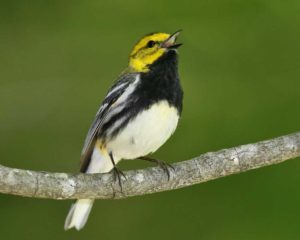
During his early teens, William (Bill) Carney’s parents move the family to Cincinnati, Ohio. There, outside their apartment is a large woods where Bill makes friends with a sprawling Osage Orange Tree, make his first forays into landscaping, and falls in love with a black throated green warbler. You can listen to Bill’s story, by clicking here. Let it inspire you to reflect on your own life-changing adventures with nature. Bill Carney is president of Sustainable San Rafael and former president of San Francisco Friends of the Urban Forest. As a landscape architect, he helped oversee the design and construction of Yerba Buena Gardens and other projects in downtown San Francisco. His publications include two book length poems—Mountain, An Evolutionary Epic, which presents the history of the universe as “the ultimate campfire story,” and Cities, a nuclear peace poem. Both are available at www.williamcarney.net.
The post William Carney’s Wild Soul Story appeared first on Mary Reynolds Thompson.
The Calling
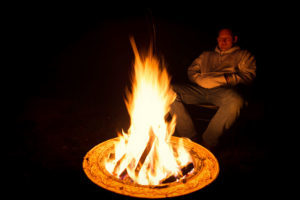 The fire is dancing tonight and the winds are talking
The fire is dancing tonight and the winds are talking
Dancers from past lives enter the circle
Leading me back and forth through the history of myself
The mind searches as the spirit dances
The drums…dancing to the heartbeat
Memories of long ago insights to the future
I hear the winds whispering my sweat lodge dreams
I see Sungmanitu tanka (the wolf) my guide
He shows me the ancestors, not mine
They are not Lakota, or Tsalagi, or Iroquois
But they are all Nations, one Nation
Speaking with wisdom to share with each other
Yesterdays create todays and promises of tomorrow
The lies will die with the smoke
And the whispers of the winds are clear and loud
And we shall all see the return of the buffalo
AHO
(C) Gerald Fisher
Invite your indigenous self to take a place in the circle? What wisdom does he or she have to share with you?
What animal guide would join you? Write about your animal guide, reflecting on their wisdom and gifts.
What insights from long ago are needed now?
Write a poem, beginning with the words, “The fire is dancing tonight…”
The post The Calling appeared first on Mary Reynolds Thompson.

